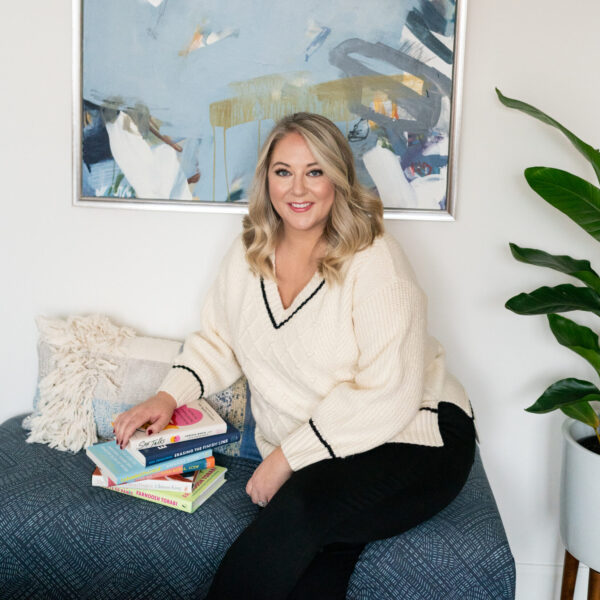
What Publishers Look For In A Book Proposal
In this blog post, I’ll share what publishers look for in a book proposal when they are reviewing them, drawing on my own experience within a publisher.
Do you ever find yourself wondering what exactly publishers are looking for in a book proposal?
Well, let me give you a little insider information.
Before I started coaching authors on crafting their book proposals, I worked in-house at a major publishing company.
As part of a small team of three, I reviewed incoming submissions and helped decide which ones had that special spark.
This kind of information is invaluable to aspiring authors, and I aim to serve!
So in this blog post, I’ll share how I used to review book proposals and the key questions I’d ask before giving a proposal the green light.
So, this is your invitation to be a fly on the conference room wall and learn what publishers look for in a book proposal as they review it.
It’s time to arm yourself with the knowledge to make your book proposal shine like a diamond in a stacked pile of paper!
Let’s dive in!
What Publishers Look for in a Book Proposal – Agent vs Unsolicited
Before we get into the questions the publishing team will ask themselves about your book proposal, let’s touch on two key factors that are really important in this process.
The first crucial factor is whether an agent submitted the proposal or if it came in as an unsolicited submission.
We always preferred to receive submissions from an agent, and here’s why.
Agents who submit book proposals on behalf of their writers have vetted the content. Their endorsement, and their investment of time and energy, suggest that the proposal has potential.
It’s like a seal of approval that says, “Hey, this manuscript is legit and worth a serious look!”
These agent-submitted proposals get several internal meetings, where the decision-makers discuss what they love about it and their concerns/questions.
With an agent attached to the proposal, the publisher has a trusted industry insider to talk it over with, and the author has an advocate in their corner, pushing their project forward.
On the other hand, when unsolicited proposals came in, they weren’t necessarily disregarded, but they often landed in the “slush pile.”
Now, that doesn’t mean there weren’t some hidden gems hanging out in that pile – but it was up to the junior editors to read a few pages of the proposal and make a quick decision.
As you can probably guess, time is of the essence in the publisher world. That goes for the time publishers have to review book proposals, too.
Time With the Proposal
The second key consideration publishers look for in a book proposal is the review timeline.
As the saying goes, time is money, and it’s true of the publishing industry.
Some agents set deadlines for responses, so teams have to allocate time strategically to review each proposal thoroughly.
We aimed to spend about two weeks evaluating a proposal before making initial decisions or reaching out for further discussions, if the agent’s timeline allowed.
This timing allowed us to delve into the proposal’s essence, evaluate its marketability, and envision its potential success in the publishing landscape.
Ok, now that we’ve gotten those two elements out of the way, let’s spend the rest of the blog post on THE most important part of this whole process: the overview and the questions a publisher will ask as they review the overview of your book proposal.
What Publishers Look for in a Book Proposal – A Standout Overview
Now, let’s talk about the heart and soul of your book proposal – the overview!
This is the real deal, the make-it-or-break-it section that publishers look at first.
When I reviewed book proposals, I was looking to see if I was sold or curious enough to read more after the first two to three pages.
I like to tell my clients to imagine the person reviewing your proposal cracking it open and saying, “Show me what you got!”
It’s up to you to deliver!
Because if you haven’t piqued the publisher’s interest with the overview, there’s a slim chance they’ll keep reading.
Many elements need to go into a successful overview. Next, we’ll delve into each consideration you need to cover.
❝ Your overview is the real deal, the make-it-or-break-it section that publishers look at first. ❞
Q: Is there a strong sense of the author’s personality?
In my Book Proposal Blueprint program, I spend a lot of time discussing how important it is to bring your personality to your book proposal.
Whenever I was reading an overview, I would ask myself a bunch of questions:
Is this author showing up in their writing a lot?
Do I understand who this writer is as a teacher, personality, and storyteller?
Would I like to have a conversation with them about their book in person?
If publishers don’t have a strong sense of your personality, it might be a pass for them because they need a full picture of the author.
Remember, this is YOUR book, and it should scream YOU!
Let your personality shine through the words. Whether you’re witty, insightful, or charmingly quirky – let it all out!
Publishers love authors with distinct voices and aren’t afraid to flaunt them.
The next consideration publishers will have is regarding the marketability of your book and you as an author, otherwise known as PR.
Q: Will this attract media attention?
Publishers are always on the lookout for promotional energy or marketing magic.
So, as they review the proposal, they’re thinking of how they can position the book and author to the media and which outlets they would approach.
That’s why I advise my Book Proposal Blueprint students to include compelling PR headlines and media outlets or journalists that would eat it up.
You are doing some of the work for the reviewer, which shows marketing savvy.
The next thing I’ll look for in your overview is … does this really have the makings of a book?
Not a pleasant thought, I know!
Q: Is this a book or a blog post?
Now, here’s the deal – publishers want real substance, so back when I was reviewing book proposals within a publisher, I would wonder, and this was always a tricky question: is this a book? Or is it a blog?
As an aspiring author, the thought of your dream book being a mere blog post might be rattling.
But the truth is that many proposed books could never fill 250 pages.
In other words, it takes extreme substance to fill a whole book and keep readers hooked.
An editor I worked with used to say “is there enough ‘there’ there? Is there enough going on here to really carry a whole book?
So, ask yourself honestly if your idea can fill the required pages and keep readers engaged.
It doesn’t mean your idea is a no-go, but you may need a qualified coach to help you tweak it and expand it with more of your story.
Q: Is it trendy or timeless?
Is your book riding the wave of a hot trend, or is it a timeless gem that’ll be a powerful read for years?
Publishers want to know if your book will still be buzzworthy when it hits the shelves.
While I’ve seen clients have a lot of success with trending topics, it’s trickier to navigate than an “evergreen” book that people can relate to for years.
If you choose to go with a trendier topic, publishers are considering if it will likely be as hot a topic when the book is published in 2-3 years.
If the topic is no longer in popular culture, the publisher is going to struggle in marketing and selling the book to retailers and readers.
On the other hand, books based on an evergreen topic will be as good and relevant now as they will in 10 years, so publishers have less to worry about on the marketing and sales side.
One way publishers assess the sales potential of your books is by looking at the comps.
Q: What are the comps?
Do you know what really blew me away when reviewing book proposals for Hay House?
A strong and accurate Comp Analysis.
A competitive analysis highlights and evaluates books similar to yours that have been previously published in the market.
A competitive analysis aims to demonstrate to publishers that there is existing demand for books in your genre or on your topic.
And finally, a competitive analysis gives YOU the opportunity to explain how your book brings something fresh to this conversation.
By identifying successful books that share similarities with yours, you provide evidence that readers are interested in the subject matter and that there’s a market for your book.
The publisher will dive deeper into the comps you provide to see how they’re selling and what the feedback is.
You’ve also heard me talk about how the publishing industry is incredibly risk-averse.
The comp analysis is a way they make sure that there is a solid sales track record.
Speaking of buyers, who do you have committed to support (aka buy!) your book?
Q: Does the author have a platform?
Building a platform for an author might be the most effective way to get your book published, make more money, and sell more copies.
Think of your platform as a community around your book topic.
Your community might follow you on social media, subscribe to your email list, or know your name and recognize you as an expert in your area.
When publishers see that you have a solid community, it immediately catches their attention.
To them, your platform is a built-in audience of people who might buy your book—which makes publishing your book less risky and more profitable for them.
Some questions they’ll be asking themselves as they review the platform section of your book proposal overview are:
- What’s the author’s reach?
- How are they engaging with their audience in email newsletters and comments?
- Is their audience growing, and are they actively growing it?
- Are they comfortable teaching and sharing their story publicly?
- Are they already sharing their expertise in a compelling and easily digestible way?
- Who do they know that can endorse their book?
- Is there a community to rally around this book?
It sounds like a lot, but don’t get discouraged!
Growing your platform doesn’t have to be all-consuming or … scary. But it’s so important that I include a whole bonus module in my signature program.
And last but not least, the publishing team weighs in on whether taking on your book will be … wait for it … an enjoyable project!
Q: Is the publishing team excited to work on this book?
As I mentioned, publishing a book is a 2-3 year commitment on behalf of the author and the publishing team, so it makes sense that everyone is excited and motivated to work on it.
When I was in-house at the publisher, in the final stages of the approval process, I would make a decision for myself and then put the question to my team members to make sure it lights them up, too.
You Know What Publishers Look For In A Book Proposal
In this blog post, you’ve got a behind-the-scenes peek at what publishers look for in a book proposal and how they review them.
You’ve learned the insider secrets, dos and don’ts, and magic ingredients to make your book proposal a publisher’s dream come true.
Crafting a compelling book proposal is like weaving a spell that captivates publishers and makes them see the potential in your work.
So because it’s THAT important, I want to recap my advice:
-> Remember the power of the overview – those first few pages can make or break it, so make them compelling.
-> Show off your personality, let your unique voice sing, and dazzle them with your PR and marketing mojo. Publishers love authors who know how to work their magic on the promotional front.
-> And don’t forget the critical considerations – is your idea book-worthy or better suited for a blog? Are you riding a trend or tapping into a timeless topic?
-> Prove that your book has what it takes to stand out with a well-crafted competitive analysis.
-> Above all, let your passion for your project shine through! Publishers want to work with authors who are excited and committed to their craft.
If you’d like to learn how to put all these elements together in a compelling book proposal that you can pitch to agents – and gain access to more of my pro publishing advice – join me for the Book Proposal Blueprint.
About The Book Proposal Blueprint
The Book Proposal Blueprint is a 10-week comprehensive program you can take at your own pace. You’ll have lifetime access, so you can return whenever you want and need to.
Through video lessons and 8 live group-coaching sessions with me, this program teaches authors and aspiring authors of non-fiction, memoir, personal narrative, and advice books how to create a book proposal that lands agents and publishers and enables them to hone in on and reach their target audience.
Share this post!
The Truth About Imposter Syndrome & Inspiration
So, if you’re ready to kick imposter syndrome to the curb and grab your book-writing journey by the horns, you’re in the right place.
Rethinking Bestseller
Becoming a bestseller is a wonderful accomplishment, but for many who seek to see their books on shelves, it’s not the end-all-be-all, and for a vast majority, it’s a goal that can be more harmful than good.
Write a Book in 2024: Activate Your Plan
Activate your plan to write a book in 2024 by taking small, intentional steps that are proven to create momentum and inspiration.
Need a roadmap to publishing your book?
I’ve got you covered!
Enter your name and e-mail below and I’ll send you my roadmap for developing your book idea. You’ll learn how to attract the right agents and publishers, and be on your way to getting your book out into the world!


